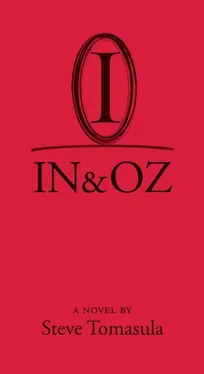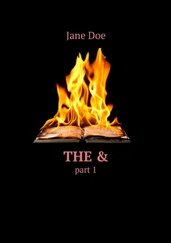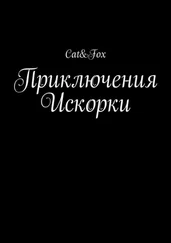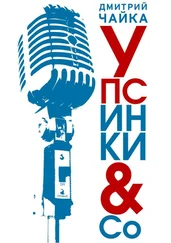She went motionless when she saw that he saw her, glanced away, then back, then gave a little finger wave.
A rush of confusion went through him — the unexpectedness, the disorientation of suddenly coming upon her — but in the confusion was a sense of relief, coming upon a familiar face after the trials of the day. She did seem glad to see him. Still, unlike their encounter on the toll road and the comforting narrow bounds that the toll lane had put upon what he was supposed to say, making his way between the chairs and shelves of books on either side, the open-endedness of this situation filled him with terror. Should he just pretend he didn’t recognize her? Turn and run? — no, he realized, remembering the sad way his broken car listed out in the street. He had to say something, but what? “Are you? — ” he tried, nearing. “Are you buying a book?”
‘No. Selling,’ she said, by way of shaking her head, then pointing to the name tag pinned to her work shirt: SALES ASSOCIATE.
“You work here?”
She smiled, nodding sheepishly.
Encouraged to see that the narrow aisle between bookshelves was very much like the lane of a tollbooth, he determined to not sound like the mo-ped he had been the last time. “Then can you show me where you keep your manuals on — On? On hydraulic brakes?”
“Shhhhhhhhhhhhhhhhhhhhhhhhhhhh!” someone hissed rudely. Turning around, Mechanic found Photographer sitting in one of the metal folding chairs he had just walked past. Photographer whispered loudly, “There’ll be a book signing afterwards; you can ask questions then.”
Book signing? Poet (Sculptor) was standing behind a podium, an open book on the podium, a microphone adjusted to her height, and the truth of what was happening dawned on Mechanic. She was giving a? — A reading? — a poetry reading?
“Oh, I’m sorry!” he exclaimed, stumbling to take a seat — where? — upfront? All three of the chairs in the line were empty and it was hard to decide. Agitated, Photographer motioned for him to sit in the one before him. “I didn’t realize!…” Mechanic stuttered, stumbling into it.
She nodded that it was okay, that no harm had been done, then continued.
“Where have you been?” Photographer snapped, leaning forward to whisper sharply in Mechanic’s ear. “Didn’t you get my note?” As was his custom, he had tied it to a brick and then dropped the brick onto the roof of Mechanic’s house so he would be alerted by the racket of the dogs it would set off. “You were supposed to have been here twenty minutes ago.”
“I–I got lost,” Mechanic whispered back. Poet (Sculptor) stood at the podium, turning pages, her eyes and finger moving down each page as she silently read. “Why didn’t you tell me she was giving a reading?”
“She’s not the type to brag,” he answered cryptically. “But it’s good you’ve come. I don’t know where Composer is….”
Composer, Mechanic thought heavily.
“…it’s the last book she created before she took up dirt as her medium. The publisher — a small experimental press — brought it out two years late,” Photographer explained, “so it’s important we support her. She was supposed to go on a book tour, but this was the only store that would have her. And they only did it because she works here.”
Watching her silently read from her work, her lips moving, Mechanic began to understand how Photographer communicated so easily with her, how his own parents had found the need to speak lessen as their fifty-year marriage wore on until finally all they had to do to let the other know what they were thinking was to be in the same room. Somehow, sitting there before her, not expected to speak, under no pressure to carry his end, or both ends of a conversation, it was easier to listen. Or rather, an understanding of what she was saying would come over him though she spoke no words, the wrinkle of her forehead speaking volumes, as did the arch of an eyebrow, a frown, or twitch so subtle that he would never have even seen it before, looking down at his shoes as he struggled to come up with something to say.
Afterwards, the two men went up to congratulate her, and Mechanic thought that at least now he knew that she was a poet. But her book, The Machine That Never Works: A Manual , was thick as his fist, and shaped like a schematic symbol for — what? A valve? A heart? That is, it was a sculpture, and opening it he expected its inside to be blank: for if what she read resulted in silence, what she read must have been blank. She wasn’t mute. He had asked Photographer about that after meeting her and according to him she actually had a beautiful reading/singing voice. It’s just that after taking up dirt as her medium, she wouldn’t use it any longer. Unless there was something really worth saying. And her silence did point out how trite, how unnecessary most, if not all, conversation actually was. But this book was her work, after all, so if she didn’t speak it, what else could she possibly consider worth saying?
But the book wasn’t blank at all. When he opened it up, visual poems poured out: warranty cards, blueprints; a wiring-harness diagram folded out into a geodesic dome the size of a breadbox: a book of poetry that was a sculpture, or a sculpture in the form of a book that was poetry? Thumbing through its pages, trying to imagine what machine all the documents and drawings could refer to, he began to wonder if by “works” she meant “works right.”
Photographer grabbed the book from his hands, then handed it to her for an autograph.
“I would like to buy a copy also,” Mechanic said, drawing out his wallet, miffed by the way Photographer had snatched the book away.
Poet (Sculptor) pretended as if she hadn’t heard him, her tongue stuck out in concentration as she fashioned a dedication to Photographer in the book’s flyleaf — more of a drawing than a signature.
“Are you sure?” Photographer asked. “Each book is twenty-five thousand dollars, you know.”
“Twenty-five thousand dollars?” Mechanic repeated, looking at the two limp bills in his billfold.
“And it’s sold. As in ‘Sold out.’ The entire print run has sold out.”
“Your book has sold out?” Mechanic repeated, incredulous. And not a little relieved. “That’s fantastic!”
Poet (Sculptor) shrugged.
“Of course there was only one copy,” Photographer said, making Mechanic afraid that he had accidentally slighted her again, that she had shrugged out of embarrassment for having such a small print run. “Mine.”
Or was she embarrassed for him, shrugging to minimize her victory because she was a good sport, a good winner, having sold every copy while she knew the difficulty he was having in getting an audience for his work. She looked back down into the elaborate signature/dedication she was drawing for Photographer.
“When the philistine publisher who held her manuscript hostage learned how much the book would cost to produce,” Photographer was explaining, “they tried to back out. They claimed that the special dies and plates that were needed to make her manuscript into the three-dimensional book she wanted would bankrupt their little kitchen-table operation. But she had a contract, and if she eliminated the sculptural nature that made her book her book it wouldn’t be her book. It would be nothing, so what would be the point? It was difficult, very difficult, huh?” he asked Poet (Sculptor). Her smile twisted into a wry look as though remembering a war story, or a story of a mass migration that had turned out well, though it was nonetheless still painful. “Many times she nearly gave in but I wouldn’t let her eliminate a single Braille dot,” he said, winking happily at Poet (Sculptor). “Unfortunately, its production costs did consume all of the publisher’s assets, and in the end, the strain to bring out this one copy cost them their office, that is their kitchen, along with the rest of the business, that is their house.
Читать дальше











